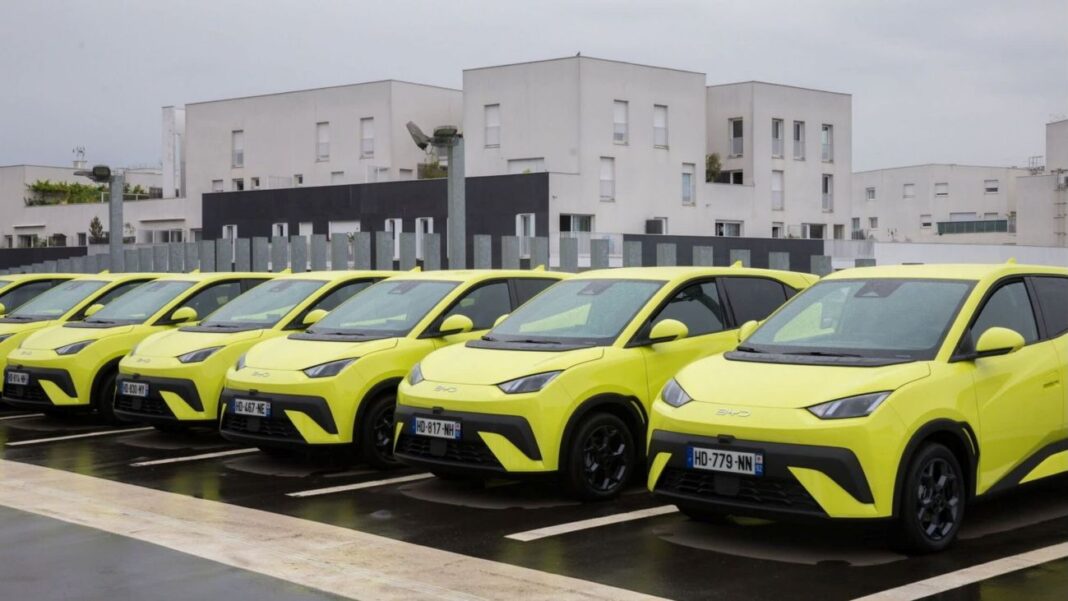In a landmark moment, BYD has outpaced Tesla in electric vehicle sales within the European market for the first time. This achievement marks a significant breakthrough for the Chinese automaker as it makes assertive strides into international territories. According to Jato Dynamics, a leading automotive data intelligence firm, BYD recorded 7,231 fully electric car registrations in Europe last month, slightly edging out Tesla’s 7,165.
This shift comes amid a dramatic 49% decline in Tesla’s sales compared to the same period last year, whereas BYD experienced an astounding 169% increase in its figures. Felipe Munoz, a global analyst at Jato Dynamics, described the event as “a watershed moment for Europe’s car market.” This development is notable given Tesla’s dominance in the region for years, while BYD only began expanding beyond Norway and the Netherlands at the end of 2022.
The downturn in Tesla’s European sales is believed to be influenced by its ageing product range and Elon Musk’s controversial political actions. Despite a recent update to Tesla’s Model Y, the US company faces stiff competition from rivals such as Renault, Stellantis, and others who have aggressively launched new, cost-effective electric vehicles. In April, Renault, Škoda, Volkswagen, Audi, and BMW all outperformed Tesla in pure electric car sales.
Globally, BYD has surpassed Tesla as the largest producer of electric vehicles, driven by robust demand in China. In Europe, its rise has stirred concern among Western automakers. This year, Chinese carmakers increased their EV registrations by 59% to 15,300 vehicles, while plug-in hybrid sales nearly multiplied eightfold to 9,649 units, as reported by Jato.
In recent years, BYD has introduced eight models across more than 30 European countries, including the competitively priced Seagull hatchback. Jolin Zhang, BYD Europe’s deputy managing director, emphasized the company’s mission to deliver advanced technology and innovation worldwide. BYD’s strategy involves a diverse lineup that includes both EVs and plug-in hybrids to cater to Europe’s varied clientele.
Looking ahead, BYD plans local production through facilities in Hungary and Turkey to navigate the high EU tariffs on Chinese EVs. However, these ambitions have been complicated by geopolitical tensions. The European Commission is examining potential unfair subsidies related to its Hungarian factory, and plans for another facility in Mexico are mired in regulatory challenges. Concerns revolve around the possible international transfer of sensitive technology. Despite these hurdles, BYD remains committed to expanding its footprint in the European market.

